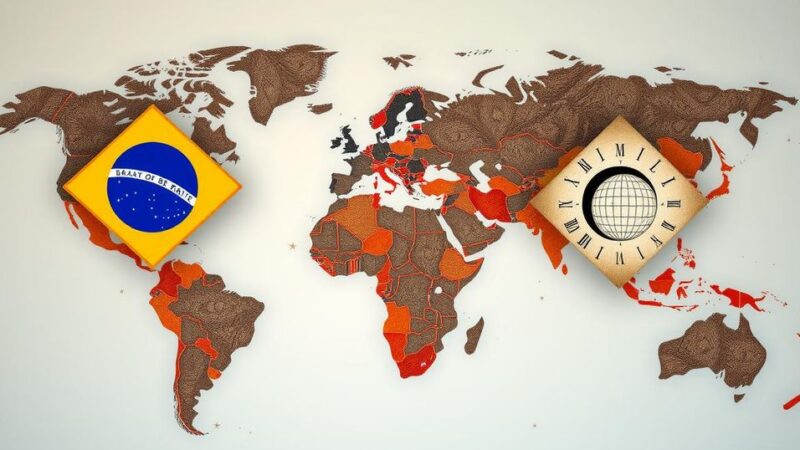Microsoft’s recent report highlights a concerning trend where nations such as Russia, China, and Iran are utilizing criminal networks to execute cyberattacks against the United States. This collaboration blurs the lines between state-sponsored cyber activities and criminal pursuits, posing significant national security risks, particularly in relation to the forthcoming 2024 elections.
A recent Microsoft report underscores a concerning trend where nations such as Russia, China, and Iran are increasingly collaborating with criminal networks to carry out cyberespionage and hacking initiatives directed against the United States and its allies. This collaboration marks a significant blurring of lines between state-sponsored cyber activities aimed at geopolitical adversaries and the independent operations of criminal groups typically motivated by financial incentives. One notable instance highlighted involved an Iranian hacking group that breached an Israeli dating platform, subsequently attempting to sell or ransom the personal information acquired. Microsoft deduced that their objectives encompassed both discrediting Israel and profiting from the breach. Similarly, a Russian criminal collective infiltrated over 50 electronic devices belonging to the Ukrainian military in efforts to procure sensitive information beneficial to Russia’s military campaigns in Ukraine, raising alarms given the absence of a clear financial incentive. This symbiotic relationship is seen as advantageous for both state actors and cybercriminals. Governments gain increased cyber capacity and efficiency without additional expenditure, while criminals benefit from enhanced profit opportunities alongside a degree of protection from governmental actions. Microsoft’s Vice President of Customer Security and Trust, Tom Burt, noted, “We’re seeing in each of these countries this trend toward combining nation-state and cybercriminal activities.” While there is currently no evidence suggesting collaborative efforts between these nation-states or shared criminal resources, the shift toward employing private cyber mercenaries illustrates the lengths to which perceived adversaries will go to leverage the internet as a tool of influence and warfare. The report also signals a troubling uptick in activities that target American electoral processes, with Russian, Chinese, and Iranian networks utilizing deceptive websites and social media accounts to propagate false information regarding the upcoming 2024 elections. Analysts concur with U.S. intelligence assessments, highlighting that Russia appears to be focusing primarily on undermining Vice President Kamala Harris’s campaign while Iran targets former President Donald Trump. Despite these grave allegations, authorities from China, Russia, and Iran have publicly denied any involvement in cyber operations aimed at the United States, accusing the U.S. of disseminating misinformation. Meanwhile, U.S. federal agencies continue to enhance their efforts to counteract foreign disinformation and cyber threats, although inherent challenges persist, such as the rapid re-emergence of seized malicious domain names. In response to these increasing threats, initiatives have been launched to dismantle websites associated with Russian disinformation and cyberattacks. Nonetheless, cybersecurity experts from the Atlantic Council’s Digital Forensic Research Lab have documented instances where newly established domains emerge almost immediately following the seizure of their predecessors, underscoring the resilience of these malicious networks.
The topic of this article revolves around the interconnectedness of state-sponsored cyberattacks and cybercriminal activities, with specific reference to nations like Russia, China, and Iran. The increasing reliance on illicit networks for cyber operations is indicative of an evolving landscape in which boundaries between government-directed and criminal cyber activities are becoming increasingly indistinct. This phenomenon poses a significant challenge to national security and raises questions about the global cybersecurity framework. Furthermore, the implications for electoral integrity and misinformation campaigns highlight the potential vulnerabilities in democratic institutions, necessitating urgent attention from cybersecurity experts and government officials alike.
In summary, the emergence of a coordinated approach between authoritarian governments and cybercriminal organizations represents an alarming trend that endangers both national security and democratic processes in the United States and its allies. As cyber threats escalate, particularly in the context of election integrity, it is imperative for cybersecurity efforts to evolve proactively to counteract these tactics, ensuring that the integrity of democratic institutions is preserved in the face of sophisticated, state-sponsored cyber threats.
Original Source: www.voanews.com







